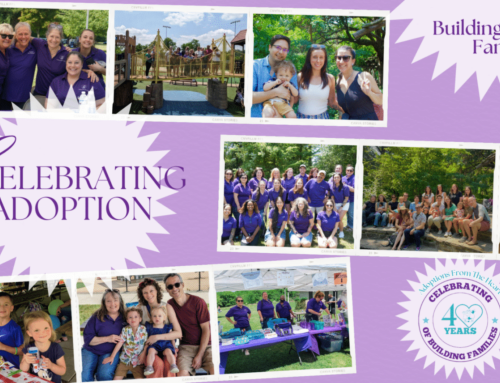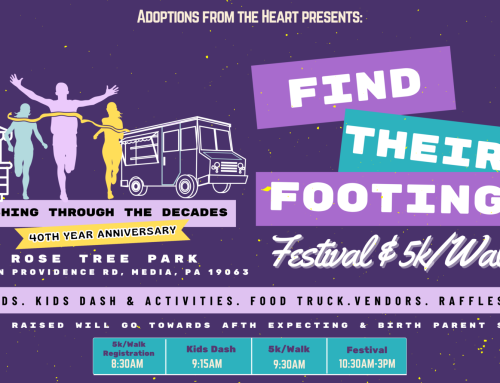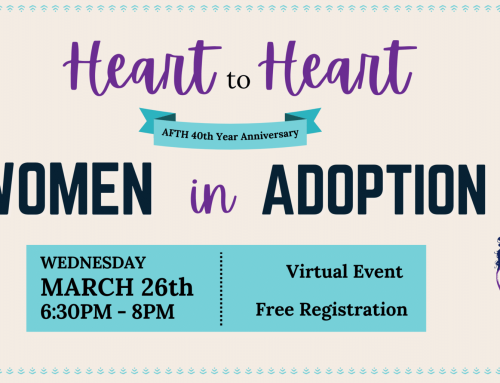In our newest episode of A Heart-to-Heart with Adoptions From The Heart, our host Jenna spoke with Brianne Kirkpatrick. Brianne is the founder of Watershed DNA and is co-author of The DNA Guide for Adoptees: How to use genealogy and genetics to uncover your roots, connect with your biological family, and better understand your medical history.
Brianne’s background in genealogy and DNA
Brianne works as a genetic counselor and DNA consultant. Her interest in genealogy stems from her family’s history. Brianne’s grandmother had been a kinship adoptee who her maternal grandparents raised. Brianne began to explore her DNA and took a strong interest in family medical histories. The work she does now at Watershed DNA was born from the marriage of her genetic counseling and genealogy backgrounds.
Before founding Watershed DNA, Brianne worked as a search angel (a person who volunteers their time to help others research and identify biological family members). She specializes in more complicated cases where the individual searching has limited information regarding their adoption record.
Why do people seek DNA testing?
Most individuals seek DNA kits due to limited knowledge about their birth or adoption and cannot access birth family members in any other way. Examples of such situations are adoptees who conduct birth family searches but reside in states with sealed adoption records.
Surprising finds in support groups
The majority of Watershed DNA’s support group and online forum members are birth fathers. Brianne notes that she has seen plenty of unknown birth fathers show up in DNA and search results. A portion of fathers in the group already knew that they had fathered children. Some fathers were completely unaware that they had fathered any children. Some of these men have expressed feeling a sense of betrayal due to not having such crucial information beforehand or even being allowed to parent their child.
Facing difficult emotions
Unfortunately, fathers are often not the only people impacted by unexpected DNA results. When a father is recognized as a DNA match, the entire family is in shock as well. Wives and children raised by the father often grapple with difficult emotions. The father’s wife and children are forced to face the reality that their family unit as they knew it is changing. Brianne likened this transition to a period of grief, mourning what they had believed to be true.
Brianne advises that reactions vary depending on the family member involved and what information they had been privy to. There have been multiple instances where the birth family members were overjoyed to be found, having known of the adoptee’s existence and desire to connect.
Potential challenges
Jenna highlighted complex situations where a state may allow a birth father to remain unnamed on birth records and his parental rights unterminated. Jenna asked Brianne if she had known of cases where an adoption had been disrupted due to a previously unnamed father coming forward. Brianne stated that she has not been involved in or knows of any DNA test results that have disrupted an adoption or in which the adoptee was a minor. In turn, Brianne shared that she sees more situations involving children who were conceived via sperm donation.
Many of the people on Watershed’s DNA online forum and support groups have run into roadblocks. An example of this roadblock is a Not Parent Expected (NPE) discovery. NPE refers to discovering that the parent listed on a child’s birth certificate is not their biological father by way of DNA testing.
Reactions to the potential challenges in a birth family search tend to be based on several factors. These factors include the ability for the seekers to have their questions answered (i.e., birth parents’ willingness to share information, whether the birth parents or relatives have passed away).
Advice for the search process
Brianne strongly advises seekers to meet with an adoption-competent counselor or therapist who can help them prepare for the search process. Such professionals can counsel seekers on the potential outcomes of the search and their feelings.
As for researching the best DNA kits, Brianne shares that four major companies offer DNA testing and family matching services: FamilyTree DNA, MyHeritage, Ancestry DNA, 23andme. Those who use DNA kits will often engage in a method referred to as “fishing in all the ponds.” To “fish in all the ponds” is to test at all DNA companies to see how many matches one will receive. When using a DNA kit, it is wise to remember that a person can only be matched will relatives who also test with that particular company. Likewise, remain aware that although someone who does not wish to be tested does not have to do so, any relatives who take a DNA test may be revealed as a match. Brianne has witnessed family connections that were revealed indirectly by way of a relative’s DNA match.
As the ladies began concluding their discussion, Brianne provided some final guidance for adoptees. In her book, The DNA Guide for Adoptees: How to use genealogy and genetics to uncover your roots, connect with your biological family, and better understand your medical history, Brianne details some of the best practices for birth family searches. In the chapter, adoptees will learn how to reach out to new family connections, when to contact them, and how often they should attempt to do so.
Listen to our full podcast on Anchor FM.





